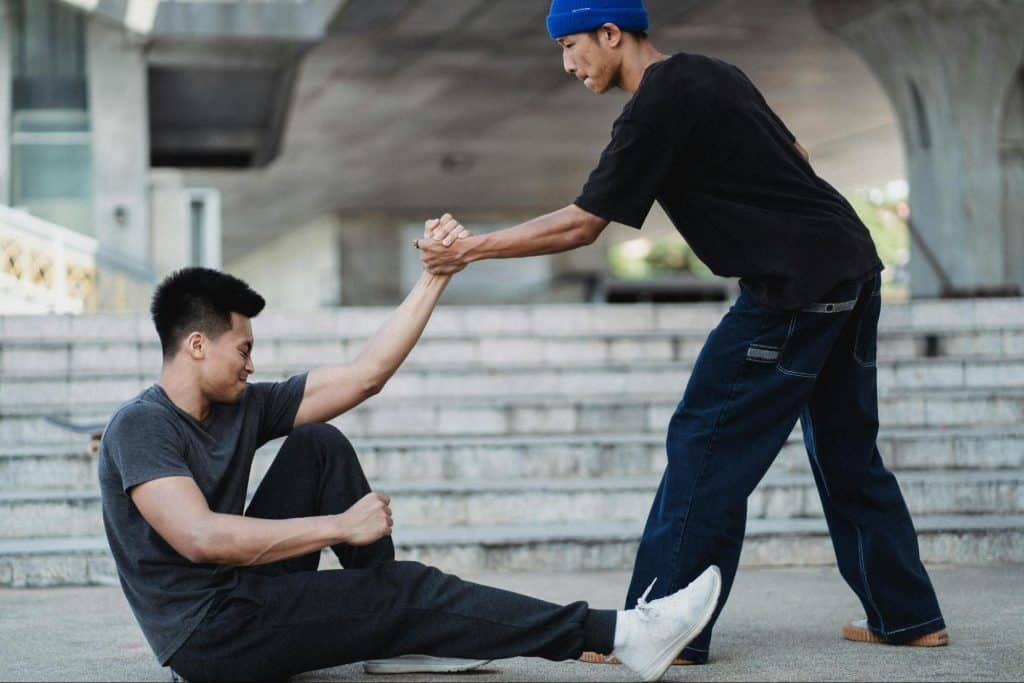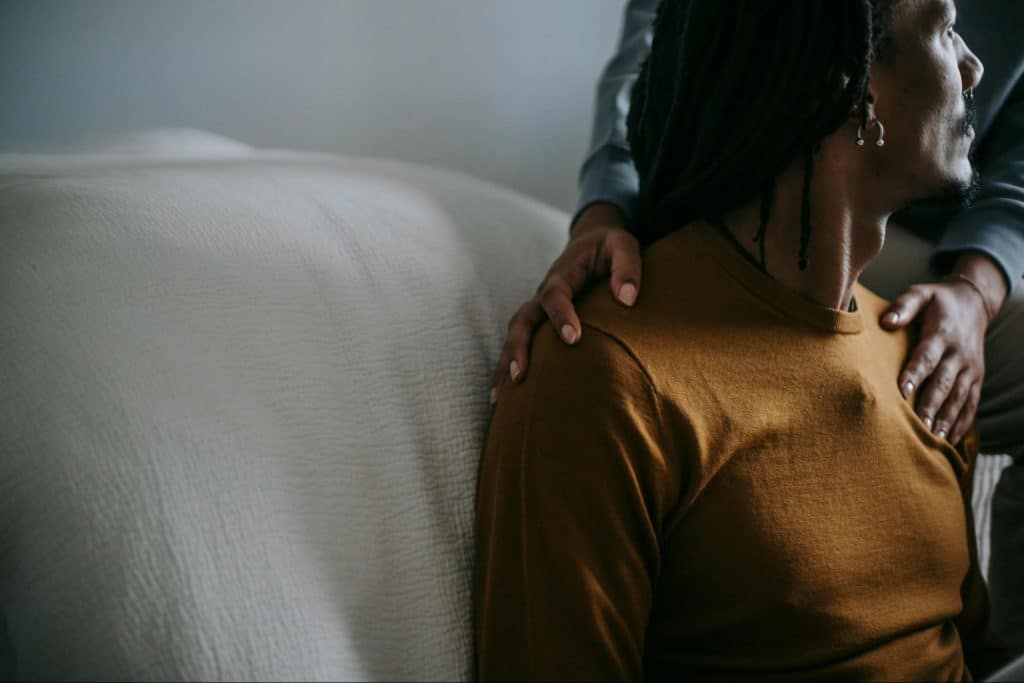
For many men, solitude isn’t peace, it’s pressure. It’s the quiet reminder of what’s missing, what’s unresolved, or who’s no longer there. The fear of being alone doesn’t always show up as loneliness; it hides behind habits, distractions, and emotional overcommitment. It makes men chase attention instead of connection, comfort instead of clarity. But recognizing this fear is the first step to freedom, because real strength isn’t avoiding solitude, it’s mastering it.
You Jump Into Relationships Too Quickly

Men afraid of being alone often confuse chemistry for compatibility. The rush of connection feels like relief, so they dive in before emotional readiness catches up. But attachment built on fear rarely lasts, it demands constant reassurance. Real love starts from peace, not panic. When you chase connections to fill emptiness, you end up building a relationship of instability.
You Stay in Relationships That Don’t Fulfill You

You know it’s not working, but the thought of being single again feels worse than staying unhappy. You tell yourself things will change, that it’s just a phase, but deep down you’re choosing comfort over truth. Fear of loneliness traps men in half-lived relationships. The longer you stay for security, the further you drift from authenticity.
You Keep Busy to Avoid Thinking

You fill every minute, work, errands, endless plans, anything to avoid sitting in silence. Stillness feels dangerous because it brings up thoughts you’d rather ignore. But busyness doesn’t heal what’s unaddressed; it just buries it. The problem isn’t being alone, it’s being unprepared for what solitude might reveal.
You Over-Text or Over-Check Your Phone

You check messages out of habit, not purpose. You wait for responses, refresh screens, and overanalyze tone. It’s not about communication, it’s about validation. The silence between texts feels heavier than it should. Technology becomes the illusion of connection that shields you from the reality of being emotionally alone.
You Confuse Attention With Affection

Flirting, casual interest, or admiration feel like proof that you still matter. But attention fades as quickly as it comes. Affection, on the other hand, requires presence and vulnerability, two things hard to access when you’re afraid of rejection. When being noticed becomes your oxygen, you end up suffocating under its absence.
You Cling to Friendships That No Longer Fit

You keep people around not because they inspire growth, but because they fill space. Old friends, familiar dynamics, even toxic connections, they all serve as noise to drown out silence. But familiarity isn’t the same as belonging. When fear drives companionship, you end up surrounded but still disconnected.
You Distract Yourself With Work

Work becomes your emotional armor. It gives you purpose, structure, and justification for avoiding emotional conversations. “I’m just busy” becomes a shield against vulnerability. But success without emotional balance breeds emptiness. Achievements can’t substitute for intimacy, they only delay its absence.
You Seek Constant Validation

Compliments, praise, and approval become addictive. You feel secure when others affirm you, and uneasy when they don’t. But external validation is a fragile anchor, one that always drifts. Confidence built on attention collapses the moment it’s gone. Real security comes from internal validation, not borrowed assurance.

When alone, you reach out to old flames, scroll through messages, or replay what-ifs. It’s not about rekindling, it’s about comfort. Familiar pain feels safer than new uncertainty. But nostalgia is a dangerous refuge; it rewrites history and traps you in loops of longing. You can’t move forward while your heart is still living in reruns.
You Settle for “Almost” Connections

You accept half-hearted effort, surface-level attention, or inconsistent energy, just to feel less alone. You tell yourself “it’s better than nothing,” but every compromise chips away at your self-respect. The truth is, being partially loved is lonelier than being single. Connection should add peace, not replace it.
You Avoid Vulnerability

You joke instead of open up. You change the topic when emotions surface. Vulnerability feels risky because it reveals need, something most men fear showing. But avoiding vulnerability only deepens loneliness. Connection without honesty is performance, not partnership.
You Use Physical Intimacy as Emotional Escape

You seek closeness through touch, not trust. Physical connection becomes a quick fix for emotional emptiness. But intimacy without emotional safety leaves a deeper void afterward. It’s not desire that drives this pattern, it’s fear. The comfort fades faster than the silence returns.
You Idealize “The One”

You convince yourself that finding the perfect partner will finally end the loneliness. But that belief places your peace in someone else’s hands. No one can complete what’s unresolved within you. When you chase completion instead of companionship, you turn love into dependency.
You Rush to “Fix” Yourself for Approval

You start projects, gym routines, or self-improvement plans not out of growth, but to become more desirable. It’s not healing, it’s performance. You’re trying to earn connection instead of embodying it. When self-improvement is fueled by fear, it only builds stronger armor around the same emptiness.
You Stay Online But Emotionally Disconnected

You scroll, comment, post, you’re visible, but not vulnerable. Online attention gives you temporary relief, but no depth. It’s an easy escape that looks like connection but feels hollow once the screen goes dark. The fear of loneliness in the digital age isn’t silence, it’s noise that means nothing.
You Become a “Fixer” in Relationships

You focus on other people’s problems to avoid your own. You find partners who need saving because it gives you purpose. But rescuing isn’t love, it’s control disguised as care. When being needed becomes your validation, you’re not healing connection, you’re managing it.
You Mistake Comfort for Compatibility

You stay where it feels safe, not where it feels alive. You avoid risk, depth, or growth because you fear losing the little connection you have. But comfort without fulfillment is emotional sedation. Being with the wrong person to avoid loneliness is still a form of being alone, just noisier.
Learning to Stand Alone Without Fear

Being alone isn’t punishment; it’s purification. It strips away distraction and leaves only truth. The goal isn’t to avoid solitude, it’s to be strong enough to face it. When you stop fearing your own company, you stop settling for half-hearted versions of love. A man who is at peace alone is a man who chooses, not chases.






Ask Me Anything